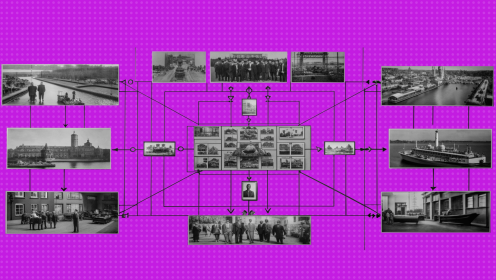A toxic colleague is a problem for any team. They manipulate, shift tasks, gossip — in short, poison the working atmosphere, provoke conflicts within the team and worsen work productivity.
If a toxic person — for example, your partner or a new acquaintance — you can simply stop communicating. But if your colleague is toxic, it will not be possible to avoid communication, and after all, such people are more often the cause of chaos in work:
- Conflicts arise that involve other employees and lead to discord in the team, as well as to the loss of valuable specialists who will not want to work in such a team.
- The business process becomes more complicated. Toxic colleagues do not meet deadlines, mess up, shift tasks, are lazy, and this worsens already well-established work processes.
6 types of toxic colleagues
I have identified conditional models of toxic colleagues that are more common at work:
- Gossips. Fans discuss all the news — who quarreled with whom in the general chat, who missed deadlines due to personal problems, etc. And gossips also like to criticize the management methods of the authorities, which jeopardizes the authority of the head.
Gossip often leads to conflicts, and also threatens a respectful working environment. This affects work productivity and employee engagement.
- Jokers who do not see the boundaries between work and friendly communication, ask personal questions, make vulgar and inappropriate jokes, put in an awkward position.
If you don't define personal boundaries and show what behavior is acceptable to you, jokers will cause discomfort. And working in such a team, you must admit, is not very pleasant.
- Manipulators. It is easy to be forced to work on vacation or during non-working hours, because "it's urgent, we can't cope without you." They will overwhelm you with their tasks that are not even within your competence.
- Always dissatisfied. I don't like everything — colleagues work the wrong way, processes are illiterate, managers are poorly managed, which they constantly whine about instead of working.
- Singles. Working in a team is not for them — they know better what to do. Singles want to stand out and prove that they are the best in the team. Although this is not a race, but a team effort.
I would also add boastful employees who consider themselves the most important element in the team and openly demonstrate. But, unfortunately, it is difficult to work with braggarts, which also does not help to build a respectful atmosphere in the team.
- Lazy. Such a colleague will do everything not to do anything — postpones tasks, refuses to take responsibility for work and shifts it to others, does not want to strain himself too much, thereby worsens work processes — delays deadlines, messes up and lets the team and the client down.
What to do if your colleague is toxic
Imagine, you and a colleague quarreled because of a misunderstanding. In this case, first you will analyze whether the conflict is worth attention — perhaps in a couple of days everything will get better by itself. Another situation: a colleague asks inappropriate questions and pushes tasks after the end of the working day, forcing you to sacrifice personal time. This means that a colleague is toxic and needs to be dealt with.
Set personal boundaries
Often we do not know how and are afraid to define personal boundaries — for example, when colleagues ask inappropriate questions, fill up with tasks after hours, etc. It seems to us that if we refuse or set a boundary, we will be considered incompetent, we will become less valuable to the team, although this is not the case. Moreover, for toxic colleagues, this is a zone for manipulation.
It's not worth scoring on border violations, it's better to indicate to your colleagues what attitude is OK for you and what is not. For example, if you are not ready to discuss personal topics at work, say it openly.
Maintain a respectful relationship
Don't get involved in other people's conflicts, so as not to be guilty later, and don't discuss anyone behind your back. Thus, you will not spoil relations with the team and will not lead to conflicts.
Start saying no
We are afraid that we will be considered bad specialists, so we agree to recycle, sacrificing personal time, or take tasks that are not part of our responsibilities. As a result, you don't have time to do your tasks, you make mistakes and burn out.
If you understand that you are being manipulated and overwhelmed with tasks that you are not ready to do — learn to say "no". This will not make you a less valuable specialist, and colleagues will respect your personal boundaries.
Discuss
Calmly discuss with a toxic colleague what confuses you in his behavior. Be restrained and don't show emotions, even if you really want to. It is important not to lose your composure and not go into conflict — your goal is to discuss the problem and find a solution, and not to spoil the relationship even more.
Discuss it with the HR department
If the conversation did not help, the involvement of outsiders in the conflict is inevitable. But you should not go to the management right away — first discuss the situation with the HR department or business coach (if there are any in the company). Perhaps they will help resolve the conflict — for example, they will transfer you and a toxic colleague to different projects, discuss the situation with a toxic colleague, etc.
The main thing is to remember that the responsibility for your comfort lies with you. If a colleague violates your personal space, do not forget about it and indicate in time what behavior is not acceptable for you. This will help in the fight against manipulators and other toxic colleagues.


















